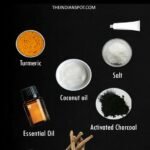Alternatives to Wisdom Teeth Removal: Explore Options

Wisdom teeth, the third set of molars that typically emerge in late adolescence or early adulthood, can often lead to dental complications such as overcrowding, misalignment, and impaction. Traditionally, the removal of wisdom teeth has been the go-to solution for preventing or addressing these issues. However, surgery can be daunting for many, leading to the exploration of alternatives to wisdom teeth removal. This comprehensive guide delves into various non-surgical options that can mitigate the problems caused by wisdom teeth, offering relief and preventive care without the need for extraction.
- Understanding Coronectomy
- What is Operculectomy?
- The Importance of Resting with Your Head Raised
- Benefits of Applying Cold Compresses
- Over-the-Counter Anti-Inflammatory Medication: A Relief
- Oral Hygiene Post-Surgery: Skipping the Toothbrush
- Nutrition Post-Surgery: Stocking Up on Soft Foods
- Rinsing with a Saltwater Solution for Healing
Understanding Coronectomy
One of the most notable alternatives to wisdom teeth removal is a procedure known as coronectomy. Designed primarily to avoid damage to the inferior alveolar nerve, which is a common risk associated with the removal of lower wisdom teeth, coronectomy involves the surgical removal of the crown of the tooth while leaving the roots intact. This method is particularly beneficial for teeth that are close to the nerve, reducing the risk of nerve injury that can lead to numbness or a tingling sensation in the lower lip and chin area. The procedure, while complex, offers a safer alternative for patients at high risk of nerve damage, ensuring that the troublesome part of the tooth is dealt with without the full implications of extraction.
What is Operculectomy?
Operculectomy presents another viable alternative to wisdom teeth removal for specific cases. This surgical procedure involves the removal of the gum tissue overlying the wisdom tooth, rather than the tooth itself. It is often recommended for patients experiencing pericoronitis, which is an inflammation of the gum tissue caused by the partial eruption of a wisdom tooth. By removing the operculum, or the flap of gum covering the tooth, the source of inflammation is eliminated, allowing the tooth more room to emerge without the need for full extraction. Operculectomy can provide relief from pain and infection, making it a suitable option for those looking to avoid the removal of their wisdom teeth.
The Importance of Resting with Your Head Raised
Whether you're exploring alternatives to wisdom teeth removal or have undergone any dental procedure, resting with your head raised can significantly impact your recovery. Elevating the head above the heart level reduces swelling and bleeding, two common post-operative concerns. This position helps by minimizing the blood flow to the area, thereby reducing inflammation and the risk of complications. For those seeking alternatives to surgery, maintaining this position when experiencing discomfort from wisdom teeth can similarly help manage symptoms and promote healing.
Benefits of Applying Cold Compresses
Applying cold compresses is a universally recommended remedy for reducing swelling and pain, not just in dental care but across various medical fields. For those considering alternatives to wisdom teeth removal, cold compresses can offer significant relief from the discomfort associated with emerging or impacted wisdom teeth. The cold helps by constricting blood vessels, which can decrease swelling and numb the area, providing temporary pain relief. This method is particularly effective during the first 48 hours of experiencing symptoms, acting as a non-invasive way to manage pain and inflammation.
Over-the-Counter Anti-Inflammatory Medication: A Relief
Over-the-counter (OTC) anti-inflammatory medications, such as ibuprofen, are another cornerstone in the management of wisdom tooth-related discomfort. For those seeking alternatives to wisdom teeth removal, these medications can provide significant relief from pain and swelling. By reducing inflammation, these drugs can help manage the symptoms associated with problematic wisdom teeth, making them a valuable tool in the non-surgical care kit. However, it's important to use these medications as directed and consult with a healthcare provider to ensure they're a safe option for you.
Oral Hygiene Post-Surgery: Skipping the Toothbrush
While not a direct alternative to wisdom teeth removal, maintaining proper oral hygiene post-surgery or during the emergence of wisdom teeth is crucial. One specific recommendation is to skip brushing the area near the extraction site or the emerging wisdom tooth for the first 24 hours to avoid irritation. Instead, focusing on gentle rinsing with saltwater or an antiseptic mouthwash can help keep the area clean without the mechanical irritation that brushing might cause. This approach helps in preventing infection and promoting healing, whether after surgery or when managing the symptoms of emerging wisdom teeth.
Nutrition Post-Surgery: Stocking Up on Soft Foods
Adjusting your diet to include soft foods is essential after wisdom tooth surgery and can be beneficial for those exploring alternatives to wisdom teeth removal as well. Soft foods require less chewing, reducing strain on the jaw and the risk of irritating the affected area. Foods like yogurt, smoothies, soups, and mashed potatoes not only provide nourishment but also minimize discomfort during eating. For individuals dealing with pain or swelling from wisdom teeth, adopting a soft food diet temporarily can help manage symptoms and ensure adequate nutrition.
Rinsing with a Saltwater Solution for Healing
Finally, one of the simplest yet most effective alternatives to wisdom teeth removal in terms of symptom management is rinsing with a saltwater solution. Saltwater rinses can help cleanse the mouth, reduce bacteria, and promote healing. This method is particularly useful for soothing inflamed gums and alleviating discomfort. By dissolving a teaspoon of salt in a cup of warm water and gently swishing it around the mouth, individuals can enjoy a natural and non-invasive way to support oral health, whether they're recovering from surgery or dealing with the emergence of wisdom teeth.
While the removal of wisdom teeth is a common procedure, there are several alternatives to wisdom teeth removal that can provide relief and prevent complications. From coronectomy and operculectomy to simple home remedies like cold compresses and saltwater rinses, individuals have various options to explore. It's important to consult with a dental professional to determine the most appropriate approach based on your specific situation. By understanding and considering these alternatives, patients can make informed decisions about their oral health care, potentially avoiding the need for extraction and enjoying a less invasive path to relief.





Leave a Reply